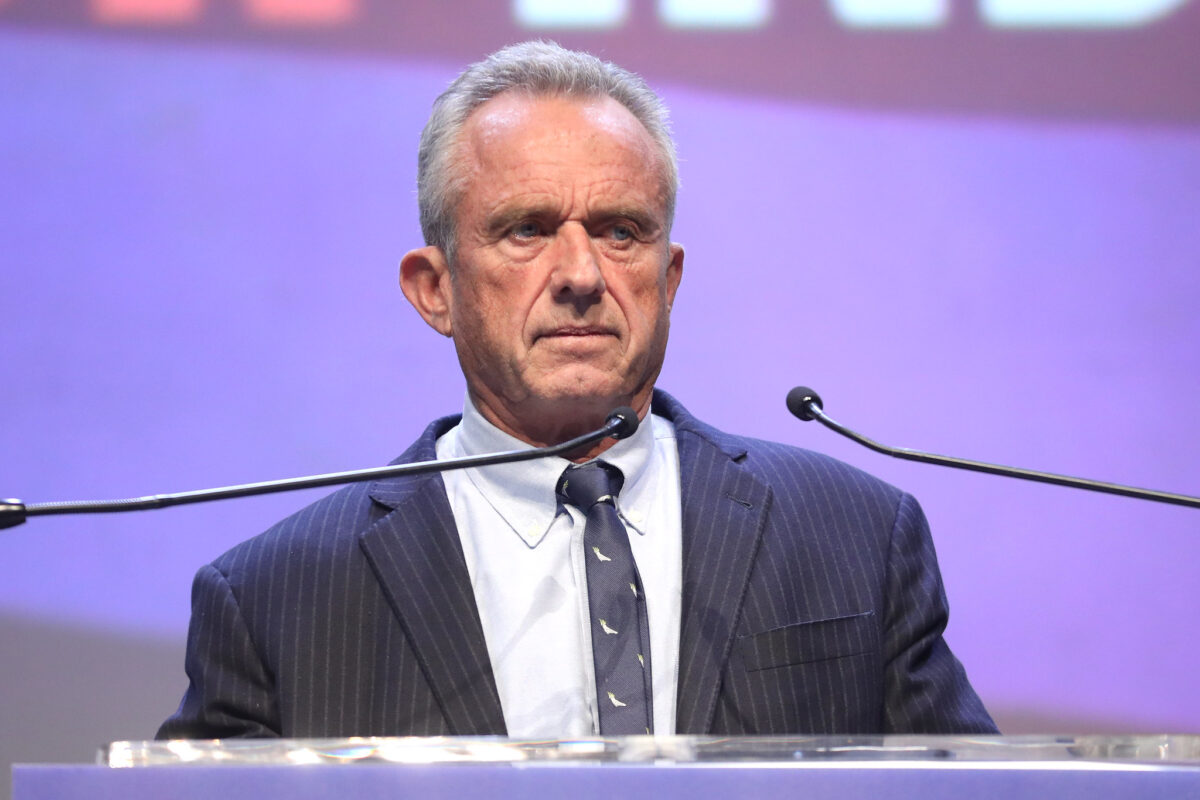The Political Storm Over RFK Jr.’s Ballot Presence
The battleground states of Michigan and Wisconsin are caught in a whirlwind of political controversy as they refuse to remove Robert F. Kennedy Jr.’s name from their presidential ballots. This comes on the heels of his unexpected withdrawal from the race and subsequent endorsement of President Trump, creating a stir that has both Republicans and Democrats scratching their heads over what this means for the upcoming election.
RFK Jr. Withdraws but Stays on the Ballot
Just recently, Robert F. Kennedy Jr. made headlines by announcing he was discontinuing his independent bid for the presidency. In a shocking twist, he endorsed none other than President Trump, leaving many political analysts pondering the ramifications of this newfound alliance.
In Michigan, officials have confirmed that despite Kennedy’s withdrawal and support for Trump, his name will remain on the ballot as a candidate for the Natural Law Party—an unusual move considering recent events. Cheri Hardmon, senior press secretary for Michigan Secretary of State Jocelyn Benson, stated clearly: “Minor party candidates cannot withdraw, so his name will remain on the ballot in the November election.” This statement underscores a key aspect of election law that could influence voter behavior.
Wisconsin’s Controversial Decision
Wisconsin finds itself in an even more heated debate regarding Kennedy’s candidacy. The Wisconsin Elections Commission voted to keep him on the presidential ballot despite his request to be removed—a decision steeped in partisan conflict. Republican members pushed hard to respect Kennedy’s wishes while their Democratic counterparts cited state law as a reason for maintaining his presence.
This partisan split illuminates deeper issues regarding how laws surrounding ballot access are interpreted differently across party lines. One significant concern is what’s known as the “spoiler effect,” where Kennedy’s presence could siphon votes away from one candidate or another—potentially tipping crucial swing states like Wisconsin into either camp’s favor come Election Day.
The Spoiler Effect: A Double-Edged Sword
Kennedy himself has recognized this risk, cautioning that his candidacy might inadvertently “hand the election over to the Democrats, with whom I disagree on the most existential issues.” His words resonate strongly among voters who understand just how pivotal every single vote can be in tight races.
The ongoing debate about whether or not to include independent candidates like Kennedy raises essential questions about fairness and representation in elections. With many Americans feeling disillusioned with traditional party politics, independent voices may hold more weight than ever before—but at what cost?
Swing State Dynamics: What’s at Stake?
The stakes couldn’t be higher in swing states like Michigan and Wisconsin when it comes to how independent candidates affect electoral outcomes. As these regions often serve as barometers for national sentiment, any disruption caused by third-party candidates could lead to unforeseen consequences during such an important election cycle.
With close races expected across many districts, every vote counts. Alternative candidates can dramatically shift voter dynamics; hence understanding their potential impact is critical for both parties striving for victory.
Navigating Voter Confusion
An additional complication arises from concerns over voter confusion stemming from multiple candidates appearing on ballots—even those who have withdrawn from contention like RFK Jr. Voters may find themselves uncertain about which candidates are actively campaigning and which ones have stepped back entirely.
This confusion can lead to unintended consequences at polling places—where misinformed choices can alter outcomes significantly. It raises vital questions about how best to inform voters without overwhelming them with too much information or misleading options.
The Ongoing Saga Continues
The drama surrounding RFK Jr.’s persistent place on ballots in Michigan and Wisconsin is just heating up as we approach Election Day. Political observers will undoubtedly keep a close watch on developments unfolding in these crucial battlegrounds, dissecting implications not only for this election but also for future democratic processes.


Leave a Comment